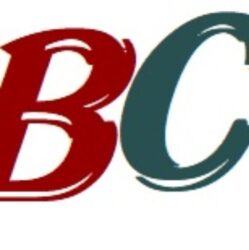In a major victory for plaintiffs pursuing claims related to robocalls and texts, a federal appellate court panel has adopted an expansive view of the legal definition of an autodialer.
Under the Telephone Consumer Protection Act, calls made via an “automatic telephone dialing system,” or ATDS, without the receiver’s consent can carry statutory penalties between $500 and $1,500 per violation.
On Thursday a unanimous three-judge panel of the U.S. Court of Appeals for the Ninth Circuit found that under the definition of an ATDS outlined in the statute, the devices can include autodialers “with the capacity to dial stored numbers automatically” rather than just those that are able to generate numbers randomly or sequentially.
“This has a massive impact on TCPA litigation, not just in the Ninth Circuit but nationwide,” said Abbas Kazerounian of Kazerouni Law Group, the lead plaintiffs lawyer in the underlying case.
Kazerounian’s client, Jordan Marks, sued Crunch Fitness in 2014 after his phone carrier charged him for three incoming text messages sent by the gym over an 11-month period. In October of that year, U.S. District Judge Cynthia Bashant of the Southern District of California granted a motion for summary judgment filed by the gym’s lawyers at Greenberg Traurig. It found that the texting system Crunch used, Textmunication, didn’t fit the definition of an ATDS since it lacked a random or sequential number generator and didn’t have the potential to add that capacity.
In Thursday’s order, Ninth Circuit Judge Sandra Ikuta noted that since the district court ruled in the case, the D.C. Circuit has set aside the Federal Communications Commission’s interpretation of the statutory definition of an ATDS on which the earlier ruling largely relied. Ikuta found that there was language in the TCPA that indicated it was meant to cover “equipment that made automatic calls from lists of recipients.”
Ikuta also noted that a 2015 amendment to the law demonstrated that Congress understood it to cover such equipment. She also concluded that even though the device is referred to as an “automatic telephone dialing system,” that doesn’t mean that it must operate without any human input.
“Common sense indicates that human intervention of some sort is required before an autodialer can begin making calls, whether turning on the machine or initiating its functions.” Ikuta wrote. She was joined in her opinion by Judges Consuelo Callahan and Carlos Bea.
The closely watched case drew amicus briefs on either side. Lawyers from Jones Dayrepresenting Sirius XM Radio Inc. and lawyers from Barnes & Thornburg representing ACA International wrote briefs backing Crunch Fitness, while National Consumer Law Center and National Association of Consumer Advocates backed the plaintiff.
In a phone interview Thursday, Kazerounian said that given the makeup of the panel—Ikuta, Callahan and Bea are among the most conservative judges on the Ninth Circuit—he and his client had gotten pressure from the TCPA plaintiffs bar to drop the appeal for fear of setting an adverse precedent. But Kazerounian said that at oral argument, which was held before the D.C. Circuit decision came down, he could tell that the judges, and Ikuta in particular, were “finely attuned to the statutes and to the implications of this case.”
“Essentially the TCPA would have been dead had they ruled the other way,” he said. “No mechanism in 2018 uses a random or sequential number generator.”
Kazerounian pointed out that the Ninth Circuit opinion departed from an earlier Third Circuit decision involving Yahoo that found that an ATDS had to have the potential to randomly or sequentially generate numbers. He said he wouldn’t be surprised if Crunch asks the U.S. Supreme Court to take up the case, given the circuit split.
Greenberg Traurig’s Ian Ballon, who argued the case for Crunch Fitness, said that the Ninth Circuit’s decision was not only at odds with the Third Circuit, but that it was also “inconsistent with the D.C. Circuit’s ruling … because it revives part of the very same overly broad interpretation of what constitutes an ATDS that was rejected … as arbitrary and capricious.”
“Under this ruling, even a mobile phone could be an ATDS, which the D.C. Circuit expressly held ‘untenable,’” Ballon wrote. “The case warrants en banc scrutiny based on Ninth Circuit Rule 35 (because of its far reaching implications on an exceptionally important issue that conflicts with a ruling from another circuit) and potentially a petition for certiorari.”

